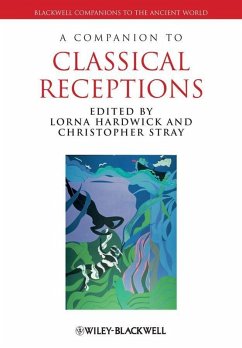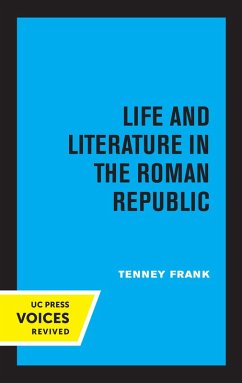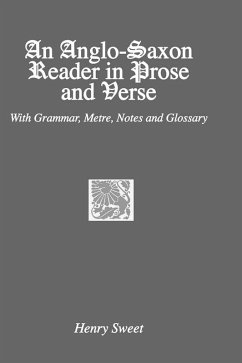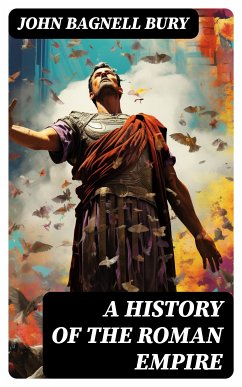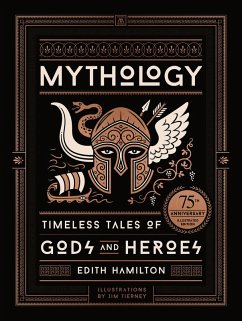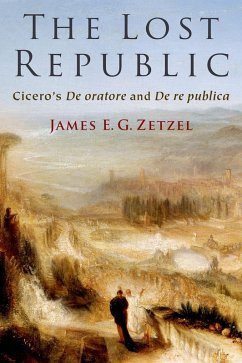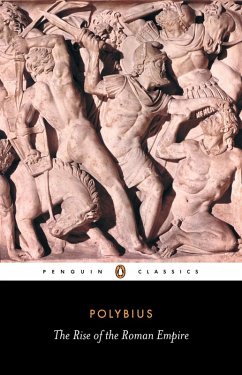
The History of Roman Literature (eBook, ePUB)
From the Earliest Period to the Death of Marcus Aurelius

PAYBACK Punkte
0 °P sammeln!
In "The History of Roman Literature," Charles Thomas Cruttwell offers a comprehensive exploration of the substantial literary contributions of ancient Rome, spanning from its early beginnings to the decline of the classical tradition. Cruttwell's erudition shines through in his clear and articulate prose, as he deftly navigates the complexities of Roman literary forms, themes, and key figures while contextualizing them within the broader tapestry of Western literary history. The book not only examines the monumental works of poets, dramatists, and historians but also reflects on the socio-poli...
In "The History of Roman Literature," Charles Thomas Cruttwell offers a comprehensive exploration of the substantial literary contributions of ancient Rome, spanning from its early beginnings to the decline of the classical tradition. Cruttwell's erudition shines through in his clear and articulate prose, as he deftly navigates the complexities of Roman literary forms, themes, and key figures while contextualizing them within the broader tapestry of Western literary history. The book not only examines the monumental works of poets, dramatists, and historians but also reflects on the socio-political and cultural factors that influenced their creation, making it an invaluable resource for understanding the evolution of Roman literature and its enduring legacy. Charles Thomas Cruttwell, a distinguished scholar of classical literature, was influenced by the burgeoning interest in classical studies during the 19th century. His academic pursuits led him to investigate not only the texts themselves but the contextual underpinnings that gave rise to such rich literary output in ancient Rome. His scholarly depth and passion for the classics inform the incisive analysis found throughout the book, appealing to both seasoned academics and casual readers alike. Cruttwell's work serves as an essential guide for anyone seeking a deeper appreciation of the intricate connections between literature and history. For students, educators, and enthusiasts of classical literature, "The History of Roman Literature" is an indispensable volume that illuminates the profound influence of Roman literary culture on subsequent generations, encouraging a renewed exploration of its timeless themes.
Dieser Download kann aus rechtlichen Gründen nur mit Rechnungsadresse in A, B, BG, CY, CZ, D, DK, EW, E, FIN, F, GR, H, IRL, I, LT, L, LR, M, NL, PL, P, R, S, SLO, SK ausgeliefert werden.




